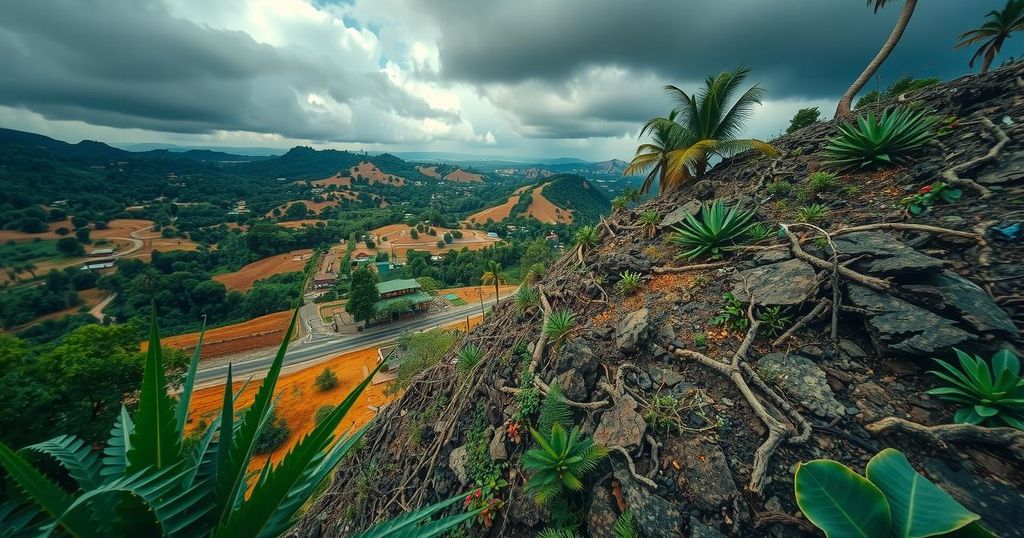Madagascar is confronting significant challenges due to ongoing drought and the effects of Tropical Cyclone Gamane, with 1.2 million people facing acute food insecurity. Approximately 2.3 million require assistance, compounded by locust infestations affecting vast agricultural lands. The situation demands urgent humanitarian responses to address the escalating crisis.
As of late September 2024, Madagascar faces a dire situation due to ongoing drought and the impacts of Tropical Cyclone Gamane, which have severely affected food security, livelihoods, and essential services. Approximately 1.2 million individuals are experiencing acute food insecurity, an alarming statistic that is projected to worsen as harvests conclude and food supplies diminish. Furthermore, significant agricultural disruptions are occurring due to widespread locust infestations, which have already impacted over 667,000 acres of farmland, threatening the prospects of future crop yields. The population of Madagascar, estimated at 30.3 million, is experiencing increasing levels of distress, particularly in the Grand Sud and Grand Sud-Est regions, where 2.3 million people require assistance. Tropical Cyclone Gamane has displaced 22,700 individuals and adversely impacted 535,000 people. The continuing drought and potential for further locust infestations during the November to April rainy season may exacerbate food scarcity and challenge recovery efforts.
Madagascar is currently grappling with severe climate-related challenges, including recurrent droughts and cyclones, notably Tropical Cyclone Gamane. These environmental stressors have led to significant humanitarian crises, with millions of individuals affected by food insecurity and displacement. The Intergovernmental Panel on Climate Change (IPCC) has indicated that climatic shifts contribute to such extreme weather patterns, which hinder agricultural productivity and threaten the livelihoods of vulnerable populations. The situation is compounded by widespread locust infestations that further threaten crop production and increase food scarcity.
In conclusion, Madagascar’s pressing humanitarian crisis demands immediate attention, with millions facing acute food insecurity and displacement due to climate-induced adversities. The combination of drought, cyclones, and locust infestations poses serious risks not only to food security but also to the overall well-being of the population. Comprehensive intervention strategies are imperative to alleviate suffering and restore stability in the affected regions.
Original Source: reliefweb.int







